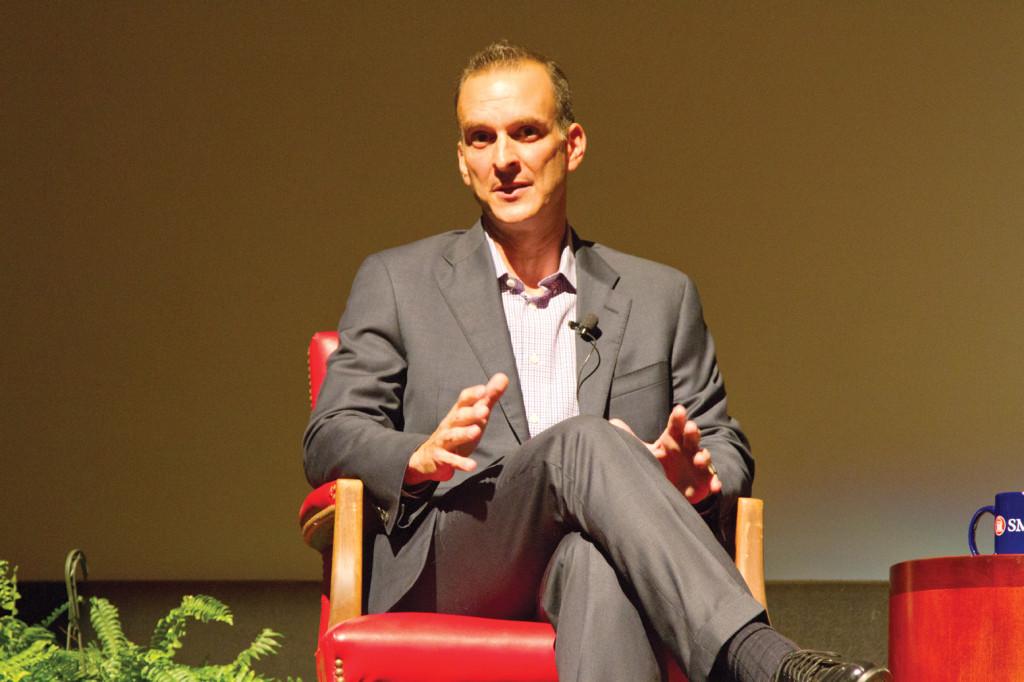
Travis Tygart, CEO of the U.S. Anti-Doping Agency (USADA), has spent his career defending his mission: “to inspire true sport.”
The lawyer behind some of today’s biggest anti-doping cases, including the recent Lance Armstrong trial, said that taking the proactive approach with young athletes is key in preventing the very thing he works to stop.
“Our ability to communicate and develop relationships with all the tens of millions of athletes and coaches out there who do it the right way [without doping] is
really important.”
Tygart said the key factor in achieving this strong communication lies in technology advances shaping his field and the country overall.
“We have athletes [mentor] athletes…from their laptop, from their iPad, from their iPhone,” Tygart said. “Our ability to communicate with them on a daily basis is critically important as they go on to compete at the highest levels.”
Technology in this case, however, also comes at a price.
As the online world market has expanded, athletes have “greater access to drugs…coming in from the Internet,” and the easy availability of such drugs “has
certainly increased.”
Despite the fact that the drugs used can be more easily obtained and hidden from testing, the physical evidence is now more permanent within technology.
“The electronic data creates a paper trail, and the athletes who are going to break the rules and defeat the testing…have to create an infrastructure of paper…that ultimately can become reliable evidence for prosecution,”
Tygart explained.
At the end of it, Tygart said his key technique is to embrace the honesty that sport — and many aspects of life — is built on.
“It’s okay to maybe try your best and get second place or third place,” Tygart said. “That is worth celebrating more than a victory that is attained by fraud or deceit.”








